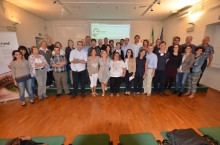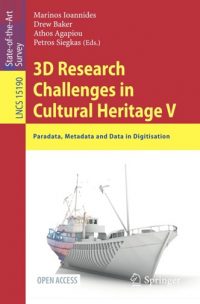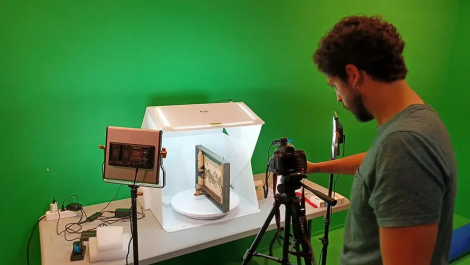-
Join the
Digital Meets Culture
Newsletter! -
Join the
Digital Meets Culture
Open Newsroom! If you have interesting news and events to point out in the field of digital cultural heritage, we are waiting for your contribution.
If you have interesting news and events to point out in the field of digital cultural heritage, we are waiting for your contribution.
-
Free text
-
-
Upcoming events
-
 Vila-seca, Catalonia, Spain. June 17-20, 2025
Vila-seca, Catalonia, Spain. June 17-20, 2025The ATLAS Annual Conference 2025 is taking place from 17 to 20 June 2025 in Vila-seca, Catalonia, organised by the ATLAS Association for Tourism and Leisure Education and Research. The theme of the event of this year is Tourist destinations … Continue reading →
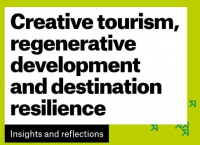 Launch of new book: Creative Tourism, Regenerative Development, and Destination Resilience
Launch of new book: Creative Tourism, Regenerative Development, and Destination ResilienceThe CREATOUR Observatory delivered the new interesting book Creative Tourism, Regenerative Development, and Destination Resilience. The book draws upon the international conference, “Creative Tourism, Regenerative Development, and Destination Resilience”, which was held 8 to 10 November 2022 in the Azores, … Continue reading →
Topic: digital preservation

“Excellent progress: the project has fully achieved its objectives and goals for the period and has even exceeded expectations”. So the European Commission concluded on 19 May, in Bruxelles, its review of the EAGLE project’s activities. The project’s conclusion looks really promising! Stay tuned! Continue reading
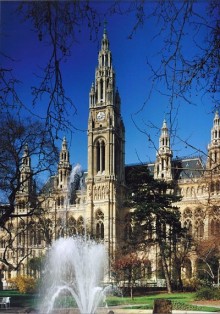
The XX Conference on Cultural Heritage and New Technologies, organised by the Department of Urban Archaeology of Vienna’s Museum, is being held in the Vienna City Hall on 2-4 November 2015. The conference’s call for paper/poster/video expires on 15 June 2015 (deadline extended). This year, the event is dedicated to the theme “Urban Archaeology and Public Relations. New Technologies Enabling Archaeological Outreach” Continue reading

This workshop, run as part of the Digital Humanities at Oxford Summer School 2015 (20 -24 July 2015), will enable participants to experience crowdsourcing in microcosm all the way from project conception to launch to data analysis. It will be of particular interest to academics, librarians and museum professionals who see the potential for crowdsourcing to expedite data extraction from non-machine readable collections. The workshop will be run by Dr Victoria Van Hyning, Digital Humanities Project Lead at Zooniverse.org (University of Oxford), and Sarah de Haas, a technical specialist from Google with a background in humanities. Continue reading

The EIUG (European Innovative Users Group) 2015 conference will be a joint conference with the Irish Innovative Users Group (IIUG). The conference will be hosted by Trinity College Dublin and will take place on 6th and 7th July 2015. Continue reading

Authors are invited to submit abstracts for poster and paper presentations related to the Topics of Interest for the Cloud Forward 2015 Conference: From Distributed to Complete Computing. The 2015 edition will take place at the Scuola Normale Superiore in Pisa, Italy, from 6 to 8 October 2015. PAPER/POSTER SUBMISSION DEADLINE: 13/07/2015 Continue reading

Part of the PREFORMA project, MediaConch (Media Conformance Checker) consists of a suite of tools and features to enable comprehensive control, testing, and modification of select archival audiovisual formats, specifically Matroska, lossless FFV1, and LPCM. Continue reading

PACKED and the University of Girona will present the PREFORMA, TI/A and DPF Manager initiatives at the Annual conference for memory institutions in Catalonia, an event which aims to help reducing this distance and promoting a great number of digital preservation initiatives in the field of archives and document management. Continue reading

In May, Europeana has launched its Business Plan 2015. This is the first year of the Europeana Strategy 2015-2020, which outlines how the company will transition into a multi-sided platform: a truly networked organisation working together to create the largest repository of trusted, accessible and re-usable digital heritage in the world. The Europeana Business Plan 2015 reflects this change in perspective. Continue reading
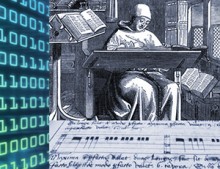
The deadline to submit proposals for the DiXiT Convention “TECHNOLOGY, SOFTWARE, STANDARDS FOR THE DIGITAL SCHOLARLY EDITION” has been extended to Thursday the 28th of May 2015. The call for paper is open to everybody (except DiXiT fellows). The … Continue reading


